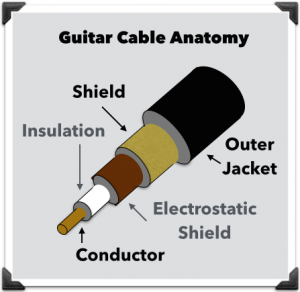The Importance of Quality in Guitar Cable Purchases
When it comes to creating exceptional sound, many musicians focus on their instruments, amplifiers, or effects pedals. However, one critical piece of gear is often overlooked: the guitar cable. The truth is, the quality of your guitar cable can significantly influence the sound you produce. It may seem like a simple accessory, but investing in a high-quality guitar cable is essential for achieving clear, distortion-free sound and ensuring a consistent, reliable performance.
Understanding the Role of a Guitar Cable
At its core, a guitar cable serves as the conduit for transferring the electrical signal from your guitar to your amplifier or sound system. This signal is then amplified and turned into the sound you hear through speakers. But the journey from the guitar to the amp is delicate, and the quality of the cable plays a major role in maintaining the integrity of that signal.
Low-quality cables can introduce several problems, including signal loss, noise, and interference. These issues result in unwanted buzzing, humming, or distortion that can affect your tone and performance. In live settings, poor cable quality can be especially detrimental, leading to unpredictable sound issues that can distract both the musician and the audience.
Key Features of a High-Quality Guitar Cable

There are several factors to consider when selecting a guitar cable. The quality of the materials used in the cable’s construction is one of the most important aspects. Here are the key features to focus on:
Conductors:
The core of any guitar cable is its conductor, typically made from copper. The best cables use oxygen-free copper (OFC) conductors, which are purer and more conductive than regular copper. OFC reduces signal loss and preserves the clarity of your sound, making it a superior choice for professional musicians.Insulation and Shielding:
Insulation protects the internal components of the cable from damage and prevents external interference. High-quality cables often feature multiple layers of insulation to guard against electromagnetic interference (EMI) and radio frequency interference (RFI). This shielding is crucial, especially in environments with lots of electronic equipment, as it keeps your signal clean and free from external noise.Connectors:
The connectors on a guitar cable are just as important as the cable itself. Look for connectors made from durable metals like gold or nickel, as they provide a better connection and resist corrosion over time. A poor-quality connector can loosen or degrade, leading to poor sound or complete failure during a performance.Cable Length:
While it might seem like a minor detail, the length of your guitar cable can also affect sound quality. Longer cables are more susceptible to signal loss and interference, especially if they are poorly shielded. For most setups, keeping your cable under 20 feet is ideal to ensure minimal signal degradation.
Why Quality Matters Over Price
Although there are plenty of inexpensive guitar cables on the market, they often lack the features needed to preserve sound quality. While it may be tempting to cut costs by purchasing a cheaper option, it’s important to consider the long-term benefits of investing in a high-quality cable. A well-made guitar cable will last longer, deliver superior sound, and perform consistently, making it a better value over time.
In contrast, cheap cables tend to break easily, have poor connectors, or introduce noise into your signal. Replacing these cables frequently can end up costing more in the long run, both financially and in terms of your sound quality. Additionally, a cable failure during a performance can be a nightmare for any musician, so investing in a durable, reliable cable is essential for peace of mind.
Conclusion
Guitar cables may seem like a small piece of the puzzle, but they play a huge role in the overall quality of your sound. When purchasing a guitar cable, prioritize quality over price to ensure you get the best performance out of your gear. Look for cables with superior materials, reliable connectors, and effective insulation to minimize interference and signal loss. With the right guitar cable, you’ll achieve cleaner sound, more consistent performance, and greater longevity from your gear.